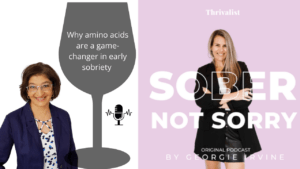Does the Brain need an Oil Change?
by Vanita Dahia
Fatty acids are the key fuel source for our brain and our body. They are required for cellular communication, immune and inflammatory pathways. It is therefore not surprising that an imbalance of the good oils can give rise to neurological imbalances.
The body requires Omega 3, 6, and 9 fatty acids in the ratio of 3:2:1 in order for the body to function appropriately. When imbalances of these fatty acids occur, inflammation and weight gain may manifest.
Today, there are few illnesses that manifest as a single disease, rather it is more commonly a combination of imbalances that bring about disease. Our brain cells are composed primarily of lipids or fats. Without the fats, we cannot stimulate neural induction and communication between brain cells.
Good fats! Bad fats!
Healthy fats keep the lining of the brain cells flexible so that memory and brain messages can pass easily between cells. Both omega 3 and Omega 6 fats are essential for brain health.
There are many benefits of the “Good Oils”
Heart health – olive oil and avocado oil, are rich in monounsaturated fats and polyunsaturated fats. These fats can help to lower LDL (bad) cholesterol levels and raise HDL (good) cholesterol levels to reduce risk of heart disease, stroke, and other cardiovascular problems .
Anti-inflammatory properties – olive oil and fish oil, have anti-inflammatory properties. Inflammation is a major factor in many chronic diseases, such as arthritis, obesity, and heart disease.
- Cognitive function – Oils, particularly DHA is needed for neurotransmission, and therefore assists in improving cognitive function and reduce the risk of dementia and Alzheimer’s disease.
Nutrient absorption – We needs the fat soluble vitamins like vitamins A, D, E, and K for a variety of bodily functions, including vision, immune function, and bone health
- Skin and hair health – The good oils like coconut, mustard seed or avocado oil can keep the skin hydrated and supple and hair shiny and strong.
We Dry Out as We Age
The importance of supplementing with essential fatty acids is paramount as we age.
Ageing particularly in a fine framed person, has the potential to “dry out”. In Ayurvedic medicine, we are in a Vata Dosha state in the older years which dry the body as it’s the air element which dominates.
- drying of the bones manifests as osteoporosis
- drying of the synovial fluid between joints may manifest as osteoarthritis
- drying of the nerve sheath may manifest as to tinnitus, vertigo, or Meniere’s disease
- drying of the brain may lead to memory loss or Alzheimer’s disease
Broken Brain
The neural pathways are stimulated by transmission along the myelin sheath. Cell membranes are made up of over 80% of fat. For all of life, the essential fatty acids (EFAs) make up membrane that not only are essential, but, arguably the most essential of all nutrients. Healthy fats keep the lining of brain cells flexible so that memory and other brain messages can pass easily between brain cells.
DHA is part of EPA/DHA Omega 3 fish oil and is essential for the development of brain growth and visual acuity particularly in the third trimester of pregnancy. DHA, a component of neural membranes in the brain and the retina have been shown to improve cognitive function, improve mood states such as stress, anxiety, confusion and support heart health.
Heart health
Research has reported in neuroscience, 2016 (https://www.journals.elsevier.com/neuroscience/) that supplementation with omega 3 fatty acid, alpha linoleic acid, a precursor of Omega 3 EPA, can protect against the risk of intracranial arteriosclerosis, a leading cause of ischemic stroke.
To oil or Not to Oil
Be aware of shelves that are lined with cheap and large tubs of fish oils!
If the capsule oil smells like fish, it is likely that the oil may have already been oxidized and therefore may be rendered inactive.
Supplement with oil in your diet through the use of nuts, seeds, olive oil, coconut oil, avocado oil et cetera.
Avoid excessive use of poly and monounsaturated oils, corn oil and fried foods.
Testing for Essential Fatty Acids
Testing for Arachidonic acid versus EPA or pro-inflammatory versus anti-inflammatory essential oils is recommended particularly if you are supplementing or if you suffer from an inflammatory condition.
Omega 3 index reflects the relative amount of Omega three fatty acids within red blood cells with a simple blood test.
A detailed reflection of Omega 3, 6 and 9 together with the various components thereof can be measured with a blood test.
Educational Webinar
In this webinar, you will learn:
- Interrelationship between fatty acids
- Therapeutic value of EFA’s
- Clinical signs to assess fatty acid balance
- Testing for EFA levels
- Understanding the lab results
- Decipher which oils are best for you






